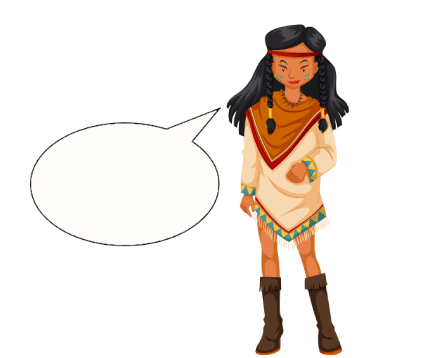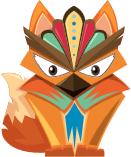Categories :
Random pokemon

Hi, It's me Gerenimot! Generate a word.
What is the story behind Pokemon?
Pokemon, short for "Pocket Monsters" is a Japanese media franchise owned by The Pokemon Company, established in 1995 by Satoshi Tajiri. Tajiri was born in Machida, Tokyo (now part of Tokyo) in 1965. He was interested in insects from an early age, and studied entomology at the prestigious Tokyo University. He became interested in insects as a hobby, as well as video games. It is said that he was inspired by catching bugs in the schoolyard when he was a child. The idea for Pokemon came to Tajiri one day when he was taking the train (he was going to work at Nintendo). He imagined, in his mind, the idea of a game where you collect insects. He ended up taking the idea to Nintendo, who told him it was a good idea, but not to expect it to be a big hit. Nintendo was, of course, very, very wrong.
Tajiri began working on the first Pokemon video game in 1995. It was originally titled "Capsule Monsters", but was renamed "Pokemon" before release. Pokemon was released in Japan in 1996, and immediately became a cultural phenomenon. The franchise has since grown to include at least 150 games (some including multiple releases), anime (or "cartoon"), manga (or "comic"), trading card game, card game to collect and a feature film. It has also created spin-off franchises including Pokemon Stadium, Pokemon Snap, Pokemon Ranger, Pokemon Mystery Dungeon, and Pokemon Conquest. Pokemon video games have been released on virtually every video game platform in existence. They are available on Nintendo's handheld consoles (the Game Boy, Nintendo DS and Nintendo 3DS), Nintendo Wii, and Nintendo Wii U and Nintendo Switch (with a new console, the Nintendo Switch, just released in March 2017). Pokemon has been translated into 15 different languages, and has sold over 279 million copies worldwide.
Pokemon is a franchise loved by kids, teens, and adults today. It has been a part of many people's lives since the 1990s. It has been ranked as one of the most popular video game franchises in the world. And while the video games are the most well-known part of the franchise, the Pokemon anime (aka "cartoon") is the most-watched part of the entire franchise. It is watched in over 90 different countries. In the United States, the Pokemon anime has aired on Cartoon Network since 1998. There have been 7 generations of Pokemon games, with a new game released every 2 years (except for the third generation, which was released in took 3 years). The Pokemon anime has the same type of release schedule. There are currently 7 generations of Pokemon anime, with the 8th generation currently airing, and the 9th generation set to air in 2018. The Pokemon anime is immensely popular, and is the second most visited paid theme park in Japan, after Tokyo Disneyland. Pokemon has become part of the culture of countries around the world. He has been mentioned in many songs, TV shows and movies. It has even been the subject of books, magazines and comics. It is truly a global phenomenon.
Random Word Generator
The Random Word Generator is a tool to help you create a list of random words. The tool generates random words for you to use in your writing or other creative projects.
Random in Computers
Computers can generate truly random numbers if given a source of entropy. This is used in cryptography where truly random numbers are needed, for example for creating encryption keys. Computers can also be used to simulate random events. By generating a series of random numbers from a stochastic process, like a Poisson process or a Markov process, a simulation of the process itself can be obtained. This is used in computer animation for the generation of natural looking phenomena, for example the way water flows in a stream. Random number generation is also used in statistical sampling to generate a representative sample from a population. If a sequence of numbers is naively generated from a true random number generator, the numbers may appear to have a pattern. The period of this pattern is the length of the seed number used. Once the whole seed number has been used, the sequence repeats. Since computers can only store and manipulate numbers as a discrete set of values, in practice all computer-generated random numbers are random. That is, each number is associated with a specific algorithm and stream of data, and the characteristics of that data affect the numbers generated. In other words, the sequence of numbers is determined by the program, which is a deterministic process. The problem is that if the algorithm is not truly random, it is possible, by examining the patterns in the sequence of numbers, to predict future values in the sequence. This is a form of statistical attack. This can be countered by changing the seed number periodically. With each new seed, a different sequence is started, which as far as is known, has an unpredictable pattern. This is exactly what is done for the sequences in many types of random number generators, including those used in computer graphics and games. In these applications, the sequence of numbers is usually displayed. Anyone who knows the algorithm can then "re-seed" the generator, with the seed number found from the sequence, and thus generate the same sequence of numbers. In computer graphics, this is not considered a problem, as what is being displayed is the pattern, not the numbers. In cryptography and computer security, however, it is a problem, since an attacker can use such a sequence of numbers to predict future values. random numbers are random enough for most practical purposes. For example, they may be used in simulations involving games of chance, like poker or blackjack. The random numbers are used to determine the outcome.

 Categories
Categories